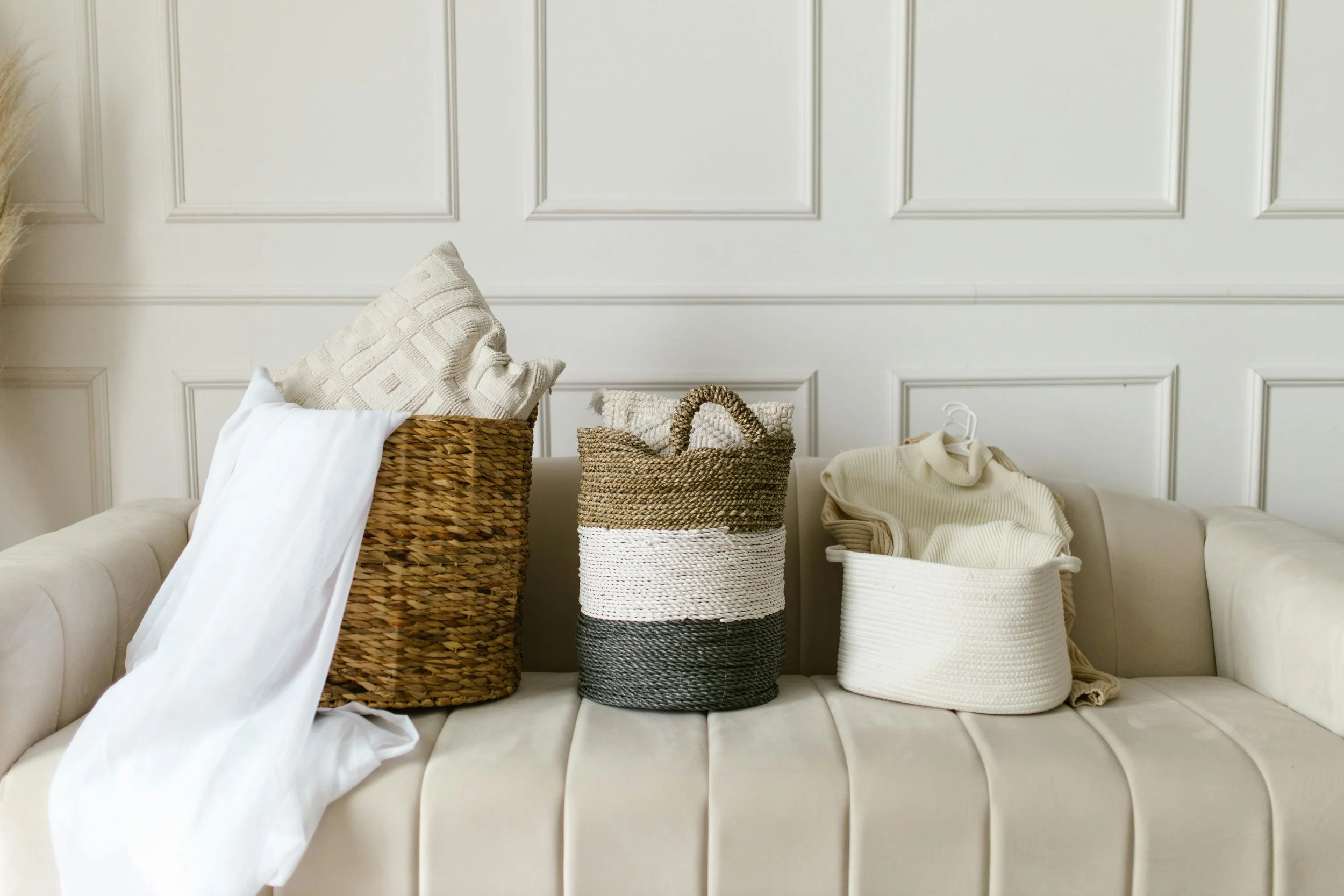21 Years, Hundreds of Homes: What I’ve Learned About Clutter and Organization
One of the first things I learned in my career is that there’s no such thing as a one-size-fits-all organizing solution. Each client comes to me for a different reason, sometimes it’s a busy family trying to reclaim their living room, sometimes it’s someone downsizing after decades in the same home, and sometimes it’s simply about making life feel less stressful.
I’ve worked in homes where rooms had a clear purpose, and others where corners became “catch-all” zones without anyone realizing it. The important thing to remember is that the right plan is always tailored to your habits, life, and the way you want to live in your space.
Clutter Attracts Clutter
Some spaces just seem to collect “stuff” without you even realizing it. A corner of the kitchen counter, a chair in the bedroom, or the table by the stairs can quickly become a drop zone. Usually, this happens because the area doesn’t have a clear purpose, so anything without a home ends up there. Once one item lands, it can feel like an open invitation for more to follow. Giving that space a defined use and making sure every item has a proper home can help to stop the clutter. A little intentionality goes a long way toward keeping surfaces clear.
Time Management and Clutter
Clutter isn’t always about having “too much” stuff. Sometimes it’s about not having enough time set aside to deal with it. Without a plan to tackle your piles, they just keep growing. Scheduling time to clear an area, just like you would a doctor’s appointment, can make a huge difference. Simply setting aside 15 minutes a day to intentionally work on one area can help you start to feel more organized. Consistency is key, so when you carve out dedicated time, the results add up quickly.
Delayed Decision-Making and Clutter
Delaying decisions can create clutter. It can be uncertainty about whether or not to keep something, guilt about letting it go, or simply not knowing where it should live in your home. The same can be true for paper or digital clutter as well, like emails that pile up because you are unsure how to handle them. The longer a decision is delayed, the easier it is for your things to accumulate. A helpful approach is to make a choice quickly whenever possible. If you know you don’t need it, donate, recycle, or toss it right away. Small, consistent decisions keep clutter from taking over.
Shopping and Clutter
While shopping can be exciting, it can also add to your clutter. Many of my clients find themselves with unopened packages or items they bought on impulse. The convenience of online shopping makes it even easier to quickly add things. A simple way to avoid this is to leave items in your online shopping cart for at least 24 hours before buying. This gives you time to ask yourself if you really need the item and where it will live in your home. Another helpful habit is the “one in, one out” rule, especially for clothing: when you bring something new in, let go of something else. This helps to keep your space balanced and prevents clutter from creeping back in.
Frequent Purging
The best way to keep clutter from creeping back is to purge often. Set a regular schedule, whether that’s monthly or seasonal, (whatever works best for you) to go through your belongings. Letting go of items you no longer need or love keeps your space feeling good and manageable. Small, consistent purges prevent those piles from building up again.
Containers Aren’t the Answer
It’s a common misconception that buying more containers will solve clutter issues. Most people already have enough bins and boxes. The real trick is to purge first and then organize what you actually use into the containers. Continuing to store the wrong items only adds to the disorganization.
Paper Management
Stacks of paper can quickly take over your life if they are not handled consistently. Keep a trash can, recycle bin, and shredder within easy reach. Toss junk mail immediately and handle important documents right away. Staying on top of paper regularly prevents piles from building up and becoming overwhelming.
Asking for Help is Okay
Organizing is a skill, and it’s perfectly fine to ask for help. Just like calling a plumber or electrician for specialized work, sometimes bringing in a professional organizer makes the process smoother and less stressful. Expert support can help you get lasting results.
Organizing can feel like a big job, but remember you don’t have to do it alone. Whether you want help creating a plan or sorting through all the clutter, we’re here to support you every step of the way. With over 20 years of experience and hundreds of spaces transformed, we know how to make the process manageable and even enjoyable. Contact us to see how we can help you create a home that feels calm and organized.



